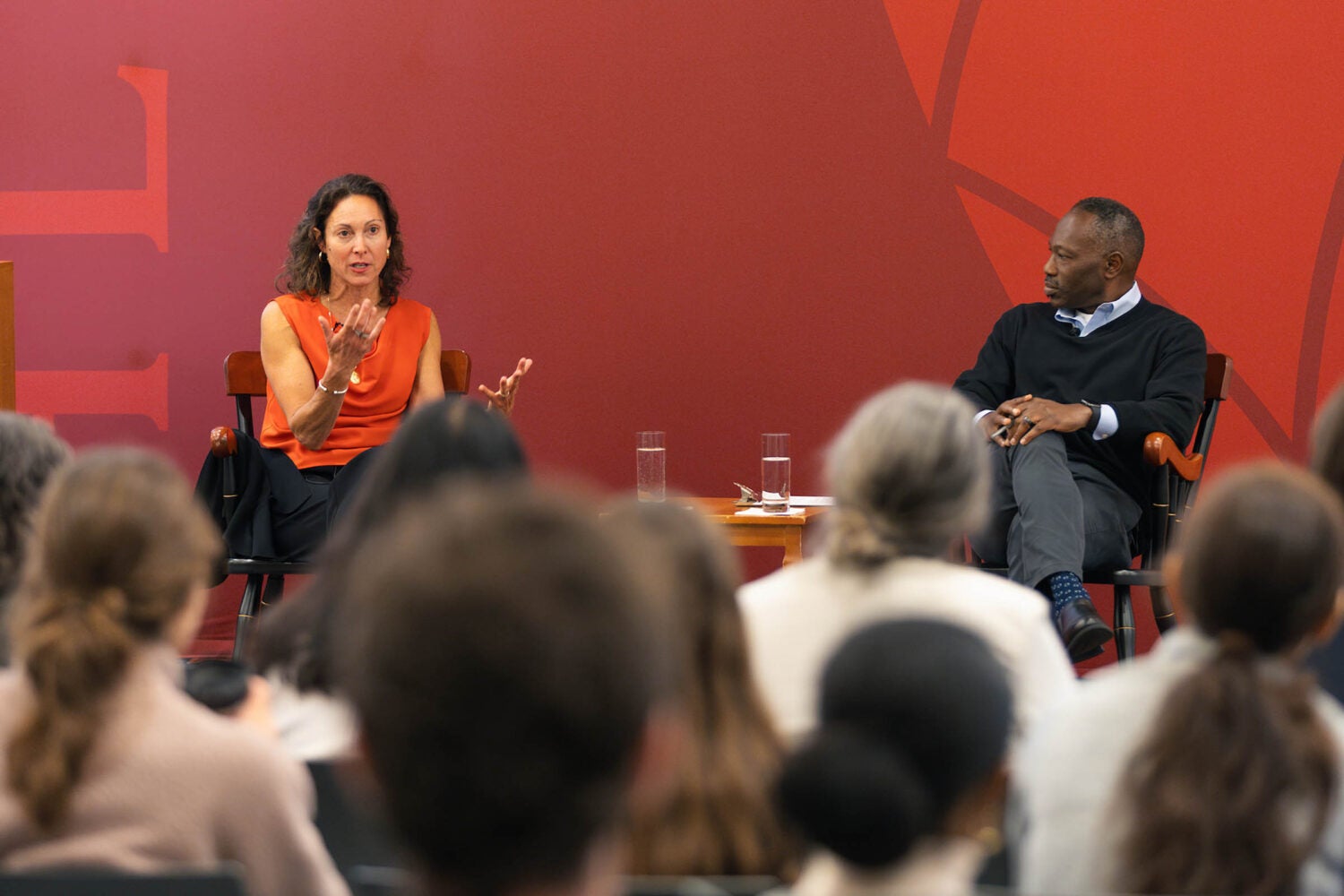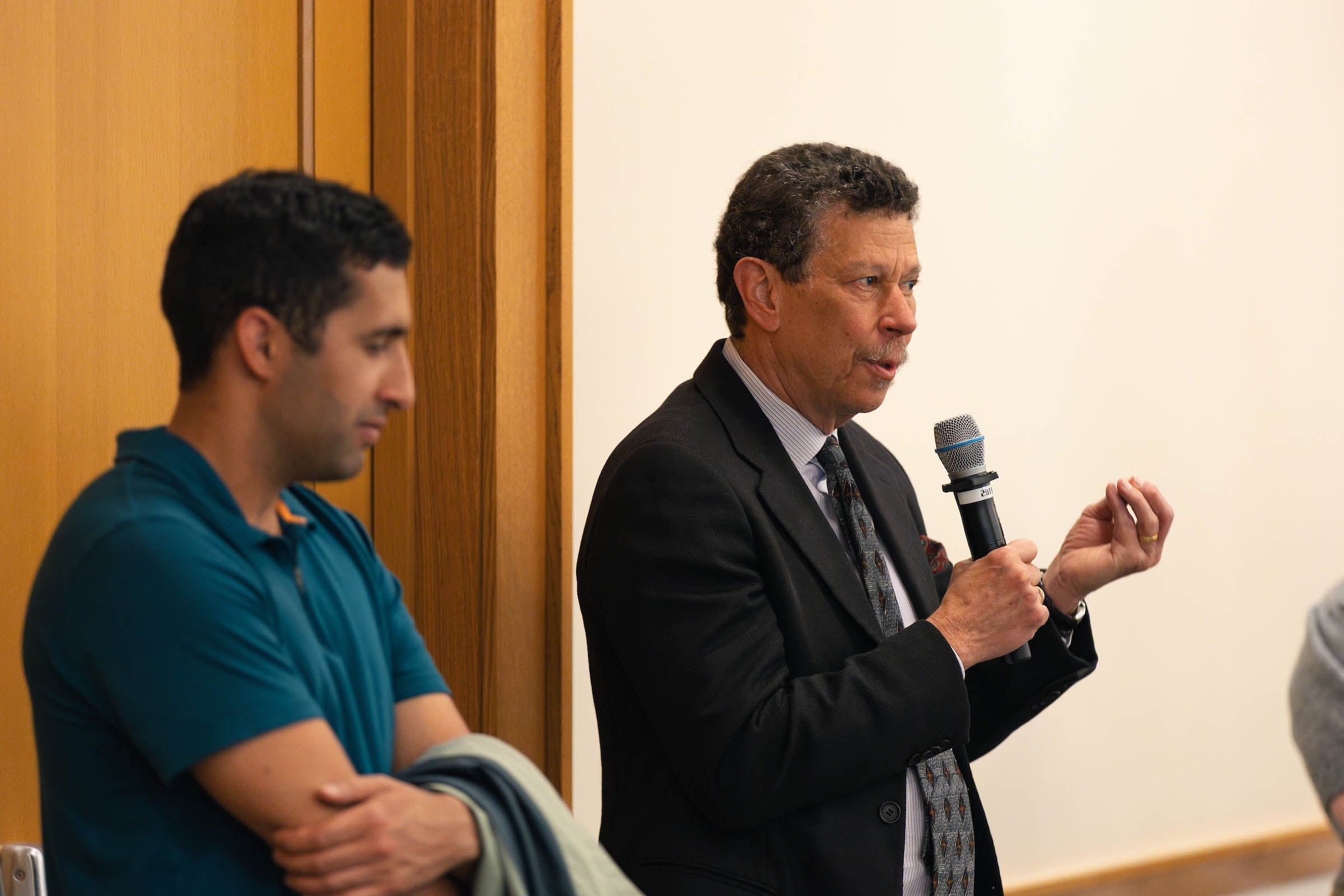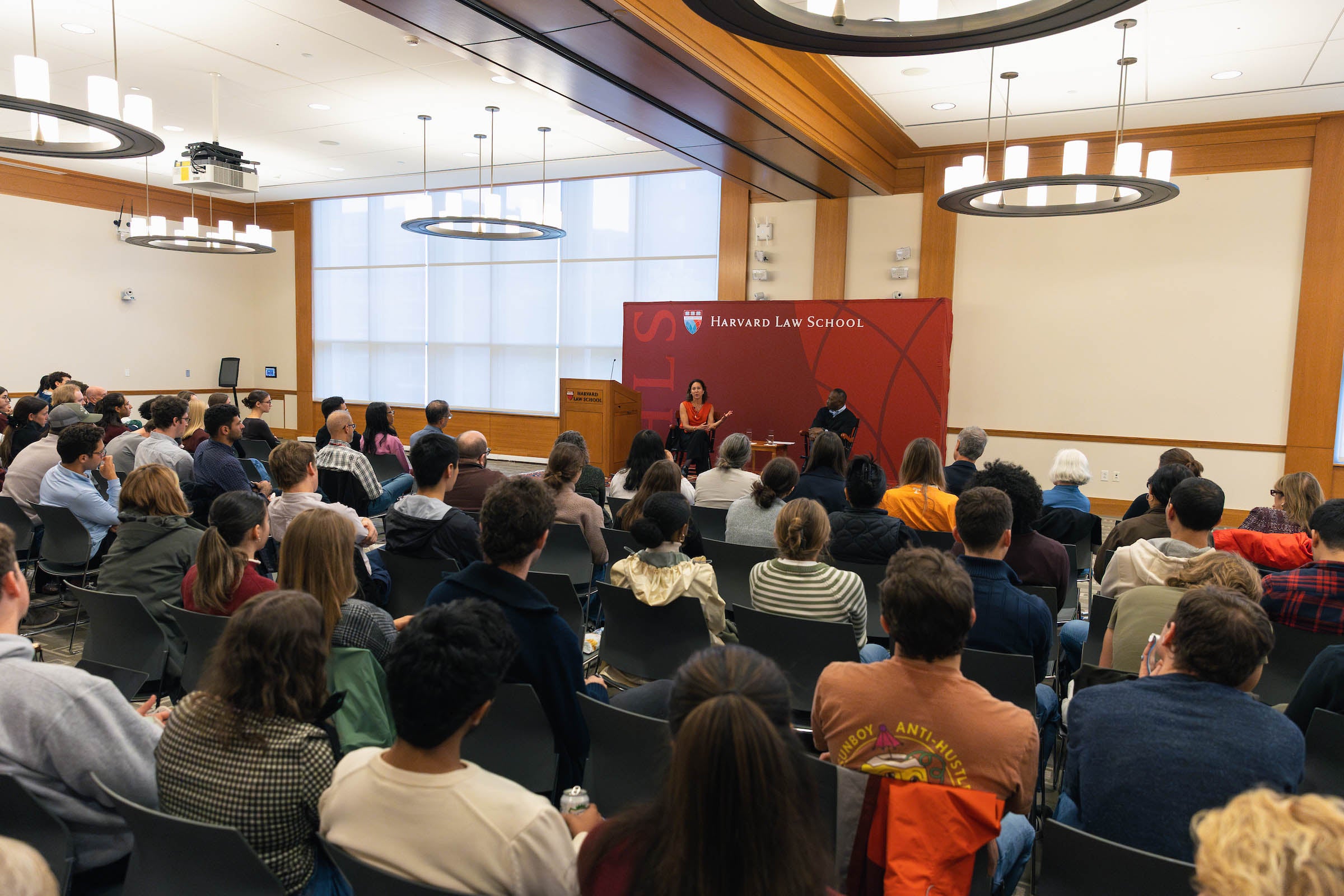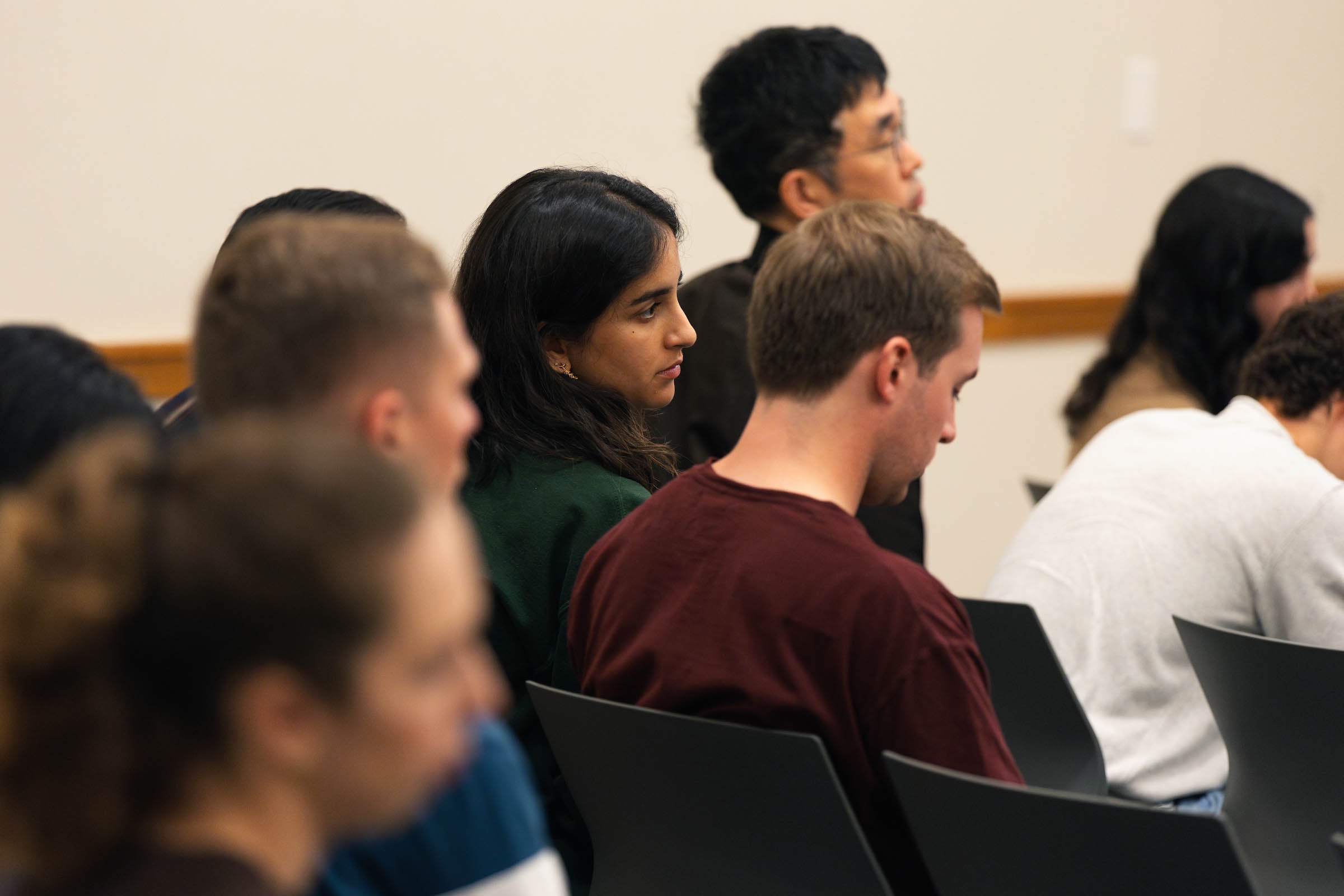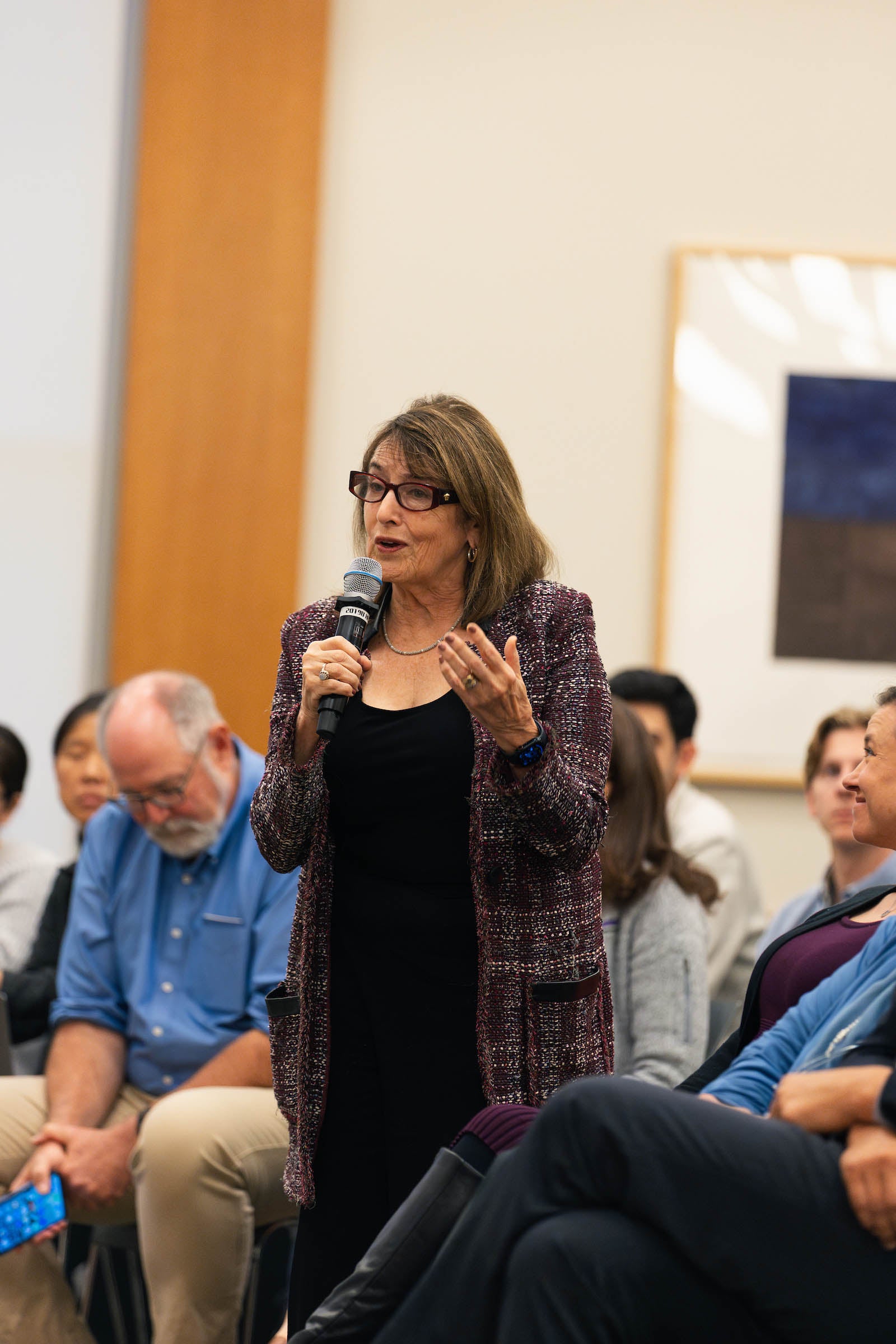In hindsight, it was a mistake for a special prosecutor of the U.S. Department of Justice to bring criminal charges against Donald Trump for his actions related to his loss in the 2020 presidential election and his handling of classified documents, according to Emily Bazelon, a staff writer at the New York Times Magazine.
The cases, which prosecutor Jack Smith ’94 dropped after Trump was elected president a second time in 2024, were based, Bazelon said, on “significant evidence of law-breaking” that came in part from a U.S. House select committee that investigated a pro-Trump crowd’s attack on the Capitol on Jan. 6, 2021. But considering what she described as the current president’s use of the Justice Department to enact retribution against his perceived foes ever since, she now believes that, “In retrospect, given all the things that have happened, I would argue it was a mistake because … there are all kinds of bad consequences flowing from it.”
Bazelon spoke with Guy-Uriel Charles, Harvard Law School’s Charles Ogletree, Jr. Professor of Law for the 2025 Francis Biddle Memorial Lecture, entitled “Has Independence Ended for the Justice Department?”
The answer is yes, at least for now, according to Bazelon, who argued that the department is in crisis and has — at the president’s direction and in just a few months — eroded its own credibility, including, she said, by bringing politically motivated charges such as those against former FBI Director James B. Comey and New York Attorney General Leticia James. Both cases, she noted, were brought over the objections of career prosecutors who either were fired or resigned as a result. Bazelon also pointed to the mass departures and firings at the department since Trump again became president in January.
“What’s happening now is just an utter dismantling of all the norms and rules that were enacted after Watergate to try to have some distance, some separation between the White House and its political aspirations and the Justice Department and what it does,” she said.
Bazelon based her remarks on her extensive reporting on the legal system over many years and on a two-part survey she conducted for the New York Times Magazine. The survey of Democratic and Republican former Justice Department officials, federal judges, and members of the White House Counsel’s Office was first conducted in the months leading up to the 2024 election, when then-candidate Trump said he would prosecute his enemies. A follow-up was published earlier this month.
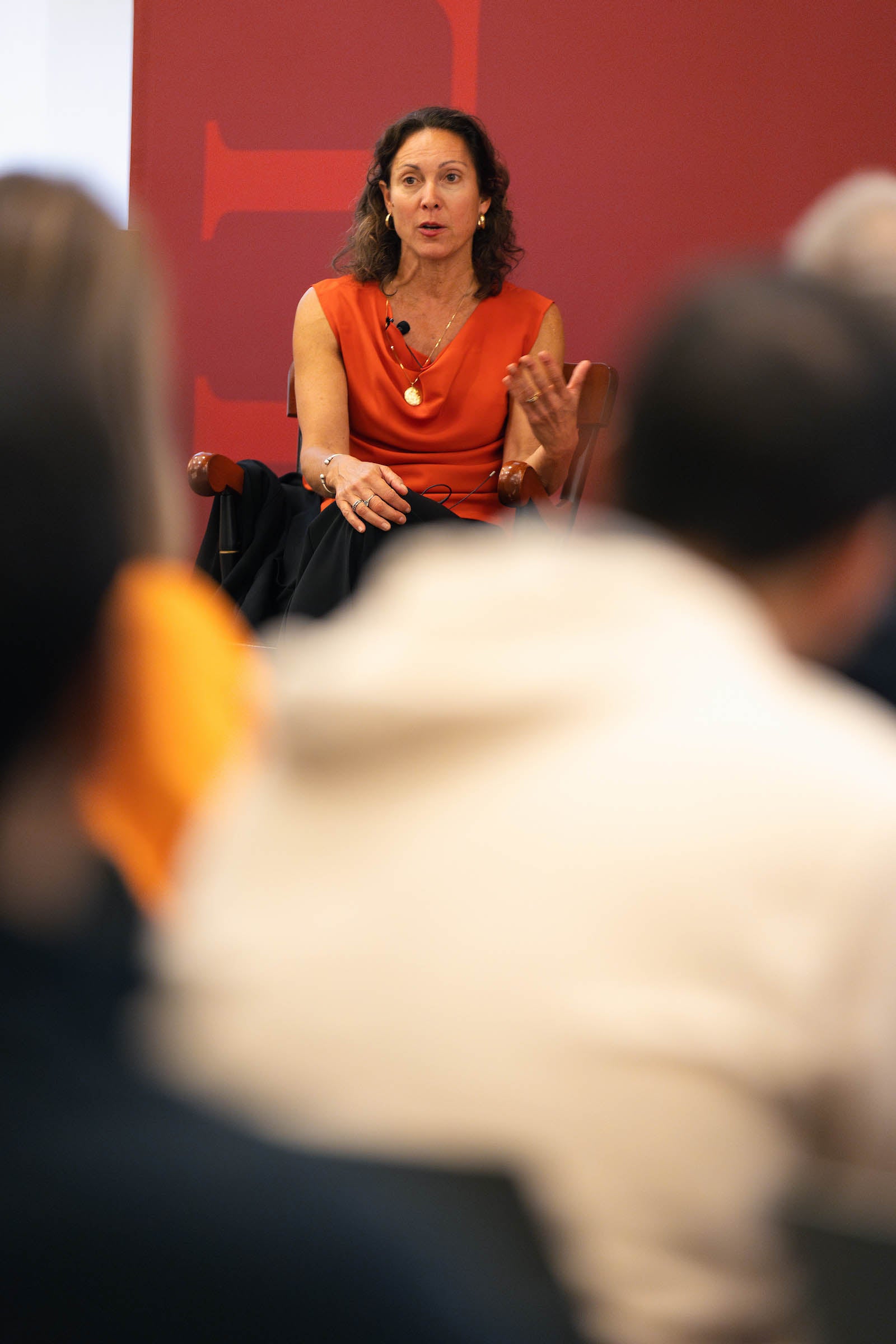
The first survey, she said, revealed “a fairly high level of alarm” about the potential for Trump to politicize the department. In the second, their “level of alarm at this point is basically off the charts,” she said, noting that the follow-up survey was conducted before the Comey and James indictments.
“When we asked the question of ‘Do you think President Trump is using the Justice Department as a tool of retribution and reward,’ all 50 people said yes,” Bazelon said, adding that “it doesn’t really look like there is an end in sight to it.”
Charles asked Bazelon what advice she had for law students who might aspire to a career in the Justice Department, which for decades has been seen as a prestigious legal path. Bazelon said she always tells students to seek jobs where they think they will learn the most. Right now, she added, “I think you’d have to be really concerned about what you were going to learn” there.
Bazelon also took questions from a packed room of students and faculty, including about the roles of journalists and judges, and whether she thinks future administrations will use the Justice Department to further their own political goals.
Of particular concern in this climate, she said, is the decision by several large law firms to make a deal with President Trump after he issued executive orders targeting the firms’ businesses.
Bazelon paraphrased Peter Keisler, a former acting attorney general under President George W. Bush, as saying that law firms — the ones that settled and the ones that have successfully fought executive orders in court — have not faced any significant adverse consequences. Instead, the real harm — a “chilling effect,” she said — is to the legal profession and to individuals and causes that need representation. As an example, she said many firms had signed on as amici to challenges to a travel ban Trump imposed during his first term while relatively few had joined lawsuits fighting the president’s current efforts to end birthright citizenship.
“The very basic tenet of the legal profession that everyone deserves a lawyer and hopefully a good lawyer is at risk because of a sense of political fear and intimidation,” she said.
As for how the country might change going forward, Bazelon said electing people who value the norms that had long protected the department’s independence could help restore credibility, but doing so won’t be easy and may require help from a future Congress.
“Once you make the system be so out of whack, bringing it back into line seems really tricky,” she said.
The Biddle lecture is named for Francis Biddle, a 1911 graduate of the law school who was U.S. attorney general during World War II. The lecture series was created with funds given to the law school by Biddle’s widow, Katherine Garrison Chapin Biddle, who asked that the lecturers reflect “that civil liberties and civil rights were of particular concern to my husband and thus particularly appropriate subject areas for the lectures.”
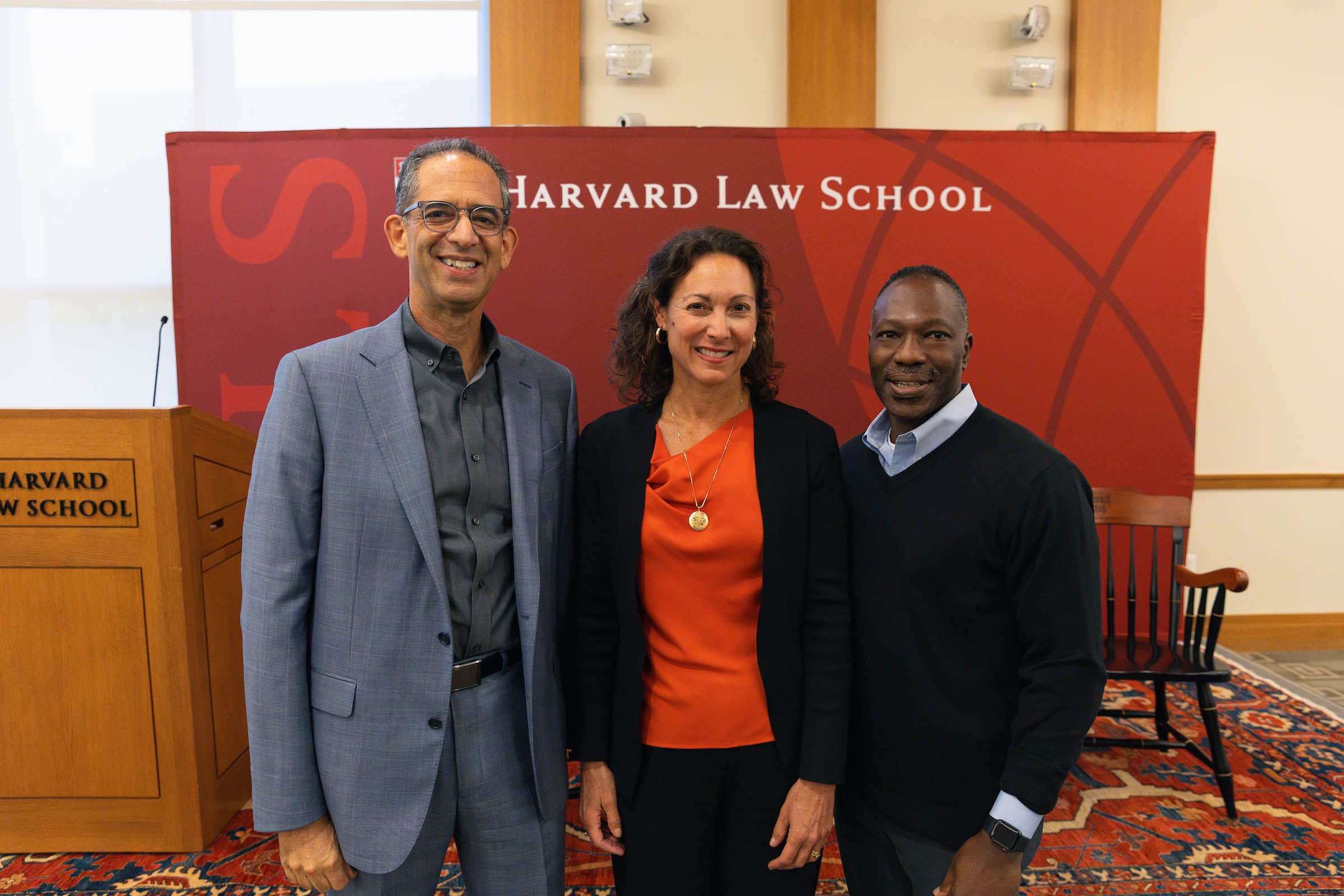
John Goldberg, Harvard Law School’s Morgan and Helen Chu Dean and Professor of Law, introduced Bazelon before the event, saying that “through a rare combination of extraordinary analytic acumen and felicity of expression,” “she is able to bridge the often-daunting gap between discourse inside and outside the legal academy.”
“Throughout her career, she has tirelessly investigated and illuminated vital questions of civil rights, criminal justice, and many other salient topics that are really central to our republic,” he said.
Want to stay up to date with Harvard Law Today? Sign up for our weekly newsletter.
